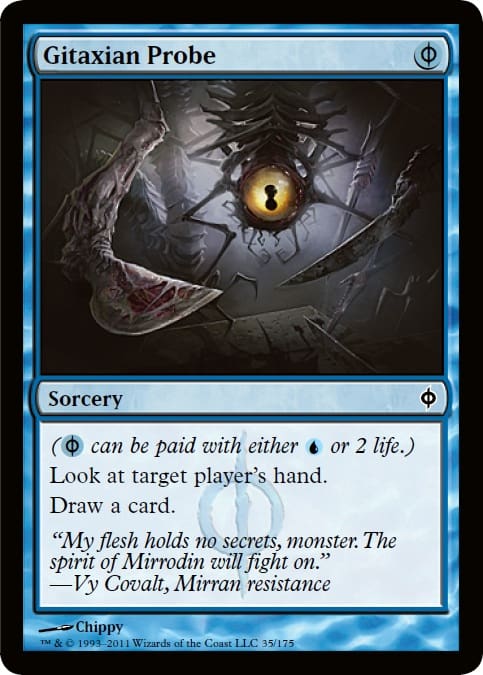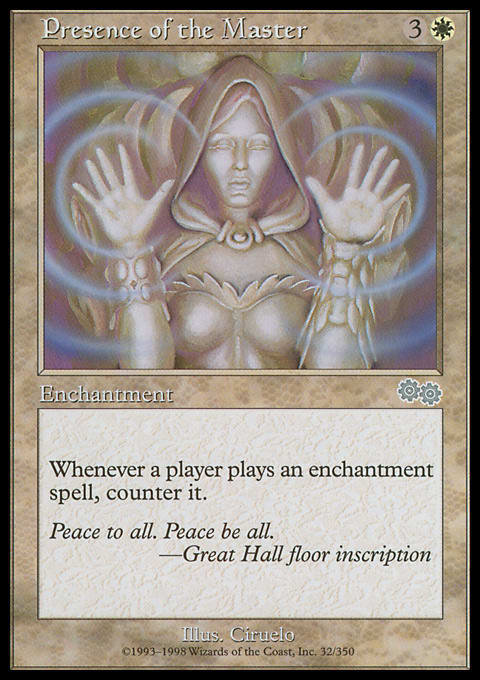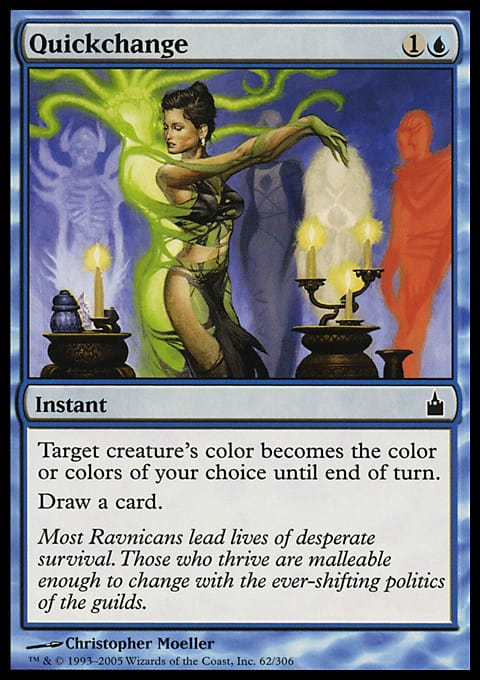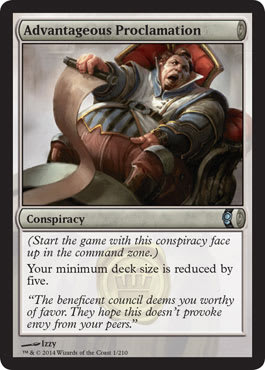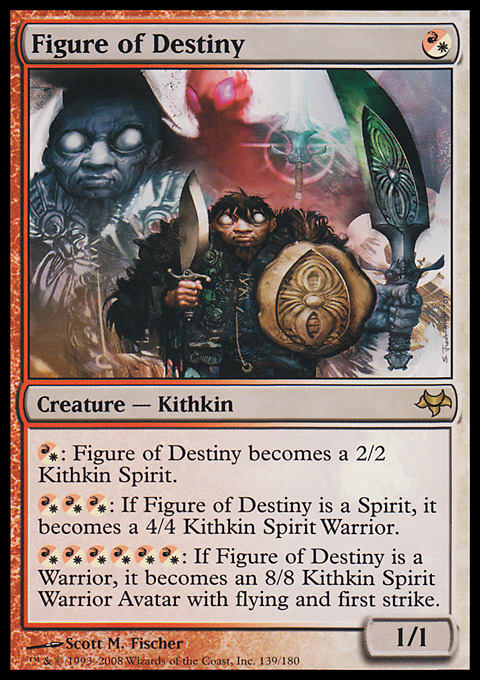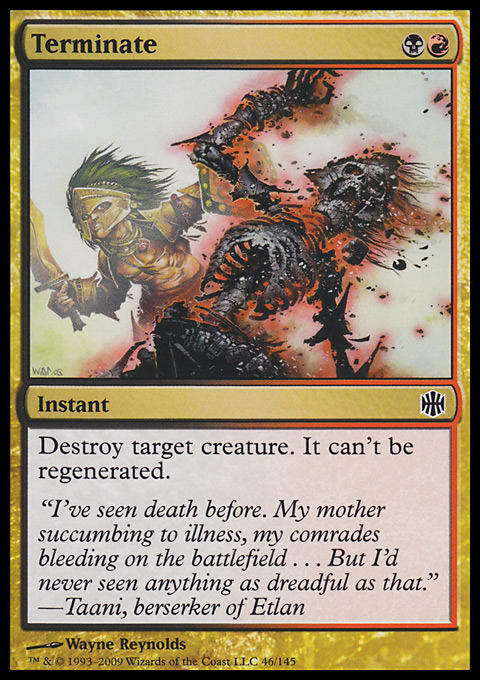Magic is a game of words: keywords and rule books, playful banter and Terms of Service agreements, judge calls and carefully negotiated agreements. Magic largely exists in the written realm.
To this end, there are articles of all manner telling us how to improve at playing Magic: Practice, play against those who are better than you, playtest more sideboarded matches, practice some more, don’t charge the cards, test, and practice. Posts exist examining the art of the game and ways to maximize the value of your collection. Profiles of the pros exist, and there’s event coverage: minutes-later updates on events that just happened. Magic is more than just a game—it exists in its own pocket universe complete with slang, stars, arts, and literature.
We live in Magic’s information age. Unlike the Dark Days of the late Nineties, every tournament is recorded, and relevant decks are preserved. Archiving is commonplace, and reliance on Mr. Peabody’s time-travel methods are becoming less necessary. In spite of the information deluge, there is still a dearth of work on how to actually make this biodome a better place. We have the community embracing pieces that expound on Wheaton’s Law. Yet . . .
Who watches the Watchmen?
Scratch that.
Who teaches the writers how to write?
The vast majority of content out there today, even in a world with Twitch.TV and YouTube, still has a written component. Every writer has some drive, some nagging force in the back of the skull going, “Let me out.” The process from that point to where the words appear on a page is one that’s glossed over once schooling is over.
I want to change that. I aim to help the aspiring writers out there.
I want to do this because I am passionate about writing. I was that student who would adjust the margins on his paper in an effort to squeeze in just one more sentence because it was the one that tied the thing together, man. When a professor would limit me to five pages, there was an internal iota of panic that I would exceed it even as classmates brought me their work to go under the Red Pen. Almost two years ago, I took my own work under the knife and realized I could be doing much better.
We can all be doing better.
Writing about Magic is a skill unto itself. It is edutainment, the informative and pleasurable intersection of the time right before and directly after the school bell rings.
Like anything, there are people out there who are better than are you at writing. There is a pantheon with names, revered and reviled alike.
Aten. Rietzl. Ffej. Flores. Rizzo.
These articles will not teach you how to be them.
It will provide instruction on how to write as you. I’ll look at some of my favorite (and not so favorite) pieces and endeavor to explain what makes them stand out. There will be discussions on writing techniques, tools, and rules. It’ll teach you how to fish.
Now, with that introduction out of the way, let me get to the heart of the matter—literally.
Lesson #1: Have Something to Say
If you have a nagging urge to write, you probably have something to say. Maybe it’s an underplayed card in Modern, a story about your epic come-from-behind victory in Commander, or why you think there should be an ice-hockey-themed block. The goal of your piece should then be to get your point across early and often and then back it up.
We don’t even have to go further than the top of this article to see an example. This piece is an introduction to a series on the subject of writing Magic articles, and it immediately starts by crafting a world in which words are the focal point. There is a narrative that sets the scene (see the Information Age), but the point is to hit with punchy paragraphs and breaks. It was intended to present a staccato style of speech and draw attention down the page, toward to the point. The entire preamble can be driven down to key points:
- There is more Magic content now than ever before.
- There is a dearth of content aimed at improving the writing around the game.
The entire first section could be written by someone else as follows:
All prose that one. The reason I crafted the introduction to the point as such is that I wanted to frame the discussion in the medium of words. This Bizarro Alex doesn’t want to paint a picture, he wants to fire the make-up gun. Personal style is important and will come across in anything that is created, but that’s a subject for a later article. Both introductions lead to the same hypothesis. And it’s important to think about the driving idea in this term. A hypothesis is a point you are trying to prove in an essay. The statement should be that idea struggling to escape. The evidence is provided is there for supporting this thought.
Having a core idea that needs to be conveyed is paramount because it will influence every word written. Mark Rosewater (a fantastic writer in his own right and someone to emulate in this niche field) often cites the screenwriting motto:
I pulled this quote from MaRo’s “How to Write an Article,” which is a great first step into creating content and should be bookmarked for any aspiring author. The gist of the quote is that if what you have put down on the page serves no purpose. Going back to my lengthy introduction, it might seem excessive on the surface, but my intended goal was to put an emphasis on the importance of words in the world of Magic, even though I can’t force you all to read it that way (one day, I’ll get to Barthe’s “Death of the Author,” but not today). Therefore, it can be said that a corollary to the header lesson today is as follows:
Everything must serve your hypothesis.
Sure, you can break this rule. But why? Stories are great, but if they don’t circle back to your main argument, it has no purpose being there in the first place. I’m not saying the link needs to be apparent immediately, but words for words’ sake are wasted.
Let’s examine a seminal piece of theory through this lens. Mike Flores’s “Who’s the Beatdown?” is considered by many to be one of the greatest Magic articles of all time. Flores wastes no time zeroing in on his target. His entire first paragraph is a summation of everything that follows:
For a writer who would go on to be known for work that was more lyrical, this is quite the one-two punch. A sentence duet, and already, the reader knows what he or she is in for. This is an opinion piece, and the author is going to back it up.
And the evidence pours in. What comes after the introduction is a sub-argument of the main point—that beatdown and control aren’t only archetypes, but are stances decks can take in particular matchups (Adrian Sullivan would later go on to expand this to the idea of Strategic Moments).
Michael J. then provides examples. Read the original for the breakdowns as they are eloquent and succinct. This article goes on the aggressive while also lulling the reader into a rhythm. Flores provides relevant (to the time) examples to back up his statement of purpose: Taking the wrong role is not a path to victory. After finishing on a mirror match, wherein one deck is specifically geared to win at red-on-red violence, Mike hits us with one of the most recognizable sentences in Magic theory:
Even today, this statement resonates. Why is this one remembered and the analogous introduction relegated to having to be read and reread to stick? It’s because these five words come after the proof. Mark Rosewater discusses the importance of a wrap-up paragraph, but this sentence is the briefest possible execution of that rule. I often leave introductions and conclusions until the end of my writing because they can be the hardest to conjure up and because they serve a similar purpose. These paragraphs seek to frame your point in a manner that is easily consumed. Flores wastes nothing in this pursuit—his conclusion is the introduction distilled down to its barest essence. Heck, he even replaces a word for a mathematical symbol. The way it is written, emboldened and separate, emphasizes the fact that this is his argument. It came at the end because that is the only place it made sense after being proposed and supported with facts.
Not every pieces is going to be high theory. Some posts are recollections of events, better known as tournament reports. Once staples of fan websites, they had fallen out of favor. As the populace strived to become better, the plays the pros made mattered less than why they made the plays. The recaps became rote. That all changed with Paul Rietzl’s championship report from Pro Tour Amsterdam 2010.
Rietzl’s piece is among the best tournament reports of all time. At the time of his victory, Rietzl had two legends in place. First, he was a well-known grinder from New England stronghold Your Move Games (home of multiple Hall of Famers). Second, he was known for partying a tad too hard before his Top 8 at Pro Tour Honolulu 2009 and going out in the quarterfinals, feet bloody from a swim against coral the evening before.
Right from the get-go, Paul has something to say about his past. He acknowledges all of his near misses and invokes a conversation with YMG Staple Tom Guevin (himself a finalist in the first PT: LA) as a setup. Rietzl was not going to let himself make the same mistakes again. The story that follows echoes in our skulls because it is the story we all wish was ours: We came so close before, and then we achieved actual greatness.
Paul Rietzl does not write on a regular schedule. Some people are volume shooters that churn out content every week, and they’re hitting their target often enough to prove their value. Others only write when they have something of import to impart, and that is what makes Paul special. His tournament reports are cherished because he only writes them when he feels the need to share: victory in the case of Amsterdam 2010 or an homage to the Pro Tour scene in his recent Journey into Nyx tale. In these cases, we know the outcome—the results of Pro Tours happen in real time. Paul’s point is that the stories that surround the records are just as important as the result, and it works because he crafts them so artfully. It is these stories that serve at the evidence for his hypothesis.
In Honolulu, I had gorged myself with cookies and told anyone who would listen that Mitamura was "going down." What a difference a year makes.” —Paul Rietzl, A Champion Returns, magic.tcgplayer.com
What’s the crux here? Learn from your mistakes, and grow. Paul shows us this growth in himself as if to say, “Look within for the answers you seek.” His report is an allegory, a fable for our collected Magic mythos.
Lesson One is all about getting an idea out. It is the first thing I am discussing for a reason: If you don’t have anything relevant to say, there is no reason to say anything at all. Flores presents his idea at the start and at the end. Rietzl’s is not as direct, but the message is ever-present. Flores is the glacier, and Rietzl is the ocean. The end result is the same, and the thoughts are conveyed. These authors believe in their message, and it gets across. They have something to say, and you should as well.
If you don’t believe what you are writing is worth saying, your reader is just as likely to believe that it isn’t worth reading. Words for words’ sake are wasted
It all starts with an idea: the plink, plink, plink of connecting thoughts in the brain. The dots connect themselves, it seems, and something has to come out. The hypothesis is formed, but everything after that has to go back to prove the postulation. Without the conviction that what is being said is important and must be heard, the article will suffer.
And sometimes, a writer will get a page or two or twelve into a piece and realize the greatest fear: There is no point.
But we don’t have to worry about that yet; we all have something to say.
The Takeaways
- Lesson #1: Have something to say.
- Corollary: Everything must serve your hypothesis.
References
- Michael Flores, “Who’s the Beatdown?” originally published on the Dojo; retrieved from StarCityGames.com
- Paul Rietzl, A Champion Returns, magic.tcgplayer.com
- Mark Rosewater, “How to Write An Article” DailyMTG.com













